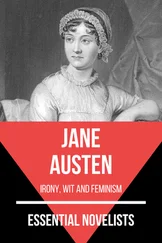The next morning, seeing no appearance of the gentleman, somebody in the house asked the servant that had showed him upstairs what was become of him. She started. 'Alas I,' says she, 'I never thought more of him. He bade me carry him some warm ale, but I forgot.' Upon which, not the maid, but some other person was sent up to see after him, who, coming into the room, found him stark dead and almost cold, stretched out across the bed. His clothes were pulled off, his jaw fallen, his eyes open in a most frightful posture, the rug of the bed being grasped hard in one of his hands, so that it was plain he died soon after the maid left him; and 'tis probable, had she gone up with the ale, she had found him dead in a few minutes after he sat down upon the bed. The alarm was great in the house, as anyone may suppose, they having been free from the distemper till that disaster, which, bringing the infection to the house, spread it immediately to other houses round about it. I do not remember how many died in the house itself, but I think the maid-servant who went up first with him fell presently ill by the fright, and several others; for, whereas there died but two in Islington of the plague the week before, there died seventeen the week after, whereof fourteen were of the plague. This was in the week from the 11th of July to the 18th.
There was one shift that some families had, and that not a few, when their houses happened to be infected, and that was this: the families who, in the first breaking-out of the distemper, fled away into the country and had retreats among their friends, generally found some or other of their neighbours or relations to commit the charge of those houses to for the safety of the goods and the like. Some houses were, indeed, entirely locked up, the doors padlocked, the windows and doors having deal boards nailed over them, and only the inspection of them committed to the ordinary watchmen and parish officers; but these were but few.
It was thought that there were not less than 10,000 houses forsaken of the inhabitants in the city and suburbs, including what was in the out-parishes and in Surrey, or the side of the water they called Southwark. This was besides the numbers of lodgers, and of particular persons who were fled out of other families; so that in all it was computed that about 200,000 people were fled and gone. But of this I shall speak again. But I mention it here on this account, namely, that it was a rule with those who had thus two houses in their keeping or care, that if anybody was taken sick in a family, before the master of the family let the examiners or any other officer know of it, he immediately would send all the rest of his family, whether children or servants, as it fell out to be, to such other house which he had so in charge, and then giving notice of the sick person to the examiner, have a nurse or nurses appointed, and have another person to be shut up in the house with them (which many for money would do), so to take charge of the house in case the person should die.
This was, in many cases, the saving a whole family, who, if they had been shut up with the sick person, would inevitably have perished. But, on the other hand, this was another of the inconveniences of shutting up houses; for the apprehensions and terror of being shut up made many run away with the rest of the family, who, though it was not publicly known, and they were not quite sick, had yet the distemper upon them; and who, by having an uninterrupted liberty to go about, but being obliged still to conceal their circumstances, or perhaps not knowing it themselves, gave the distemper to others, and spread the infection in a dreadful manner, as I shall explain further hereafter.
And here I may be able to make an observation or two of my own, which may be of use hereafter to those into whose hands these may come, if they should ever see the like dreadful visitation. (1) The infection generally came into the houses of the citizens by the means of their servants, whom they were obliged to send up and down the streets for necessaries; that is to say, for food or physic, to bakehouses, brew-houses, shops, &c.; and who going necessarily through the streets into shops, markets, and the like, it was impossible but that they should, one way or other, meet with distempered people, who conveyed the fatal breath into them, and they brought it home to the families to which they belonged. (2) It was a great mistake that such a great city as this had but one pest-house; for had there been, instead of one pest-house—viz., beyond Bunhill Fields, where, at most, they could receive, perhaps, two hundred or three hundred people—I say, had there, instead of that one, been several pest-houses, every one able to contain a thousand people, without lying two in a bed, or two beds in a room; and had every master of a family, as soon as any servant especially had been taken sick in his house, been obliged to send them to the next pest-house, if they were willing, as many were, and had the examiners done the like among the poor people when any had been stricken with the infection; I say, had this been done where the people were willing (not otherwise), and the houses not been shut, I am persuaded, and was all the while of that opinion, that not so many, by several thousands, had died; for it was observed, and I could give several instances within the compass of my own knowledge, where a servant had been taken sick, and the family had either time to send him out or retire from the house and leave the sick person, as I have said above, they had all been preserved; whereas when, upon one or more sickening in a family, the house has been shut up, the whole family have perished, and the bearers been obliged to go in to fetch out the dead bodies, not being able to bring them to the door, and at last none left to do it.
(3) This put it out of question to me, that the calamity was spread by infection; that is to say, by some certain steams or fumes, which the physicians call effluvia, by the breath, or by the sweat, or by the stench of the sores of the sick persons, or some other way, perhaps, beyond even the reach of the physicians themselves, which effluvia affected the sound who came within certain distances of the sick, immediately penetrating the vital parts of the said sound persons, putting their blood into an immediate ferment, and agitating their spirits to that degree which it was found they were agitated; and so those newly infected persons communicated it in the same manner to others. And this I shall give some instances of, that cannot but convince those who seriously consider it; and I cannot but with some wonder find some people, now the contagion is over, talk of its being an immediate stroke from Heaven, without the agency of means, having commission to strike this and that particular person, and none other—which I look upon with contempt as the effect of manifest ignorance and enthusiasm; likewise the opinion of others, who talk of infection being carried on by the air only, by carrying with it vast numbers of insects and invisible creatures, who enter into the body with the breath, or even at the pores with the air, and there generate or emit most acute poisons, or poisonous ovae or eggs, which mingle themselves with the blood, and so infect the body: a discourse full of learned simplicity, and manifested to be so by universal experience; but I shall say more to this case in its order.
I must here take further notice that nothing was more fatal to the inhabitants of this city than the supine negligence of the people themselves, who, during the long notice or warning they had of the visitation, made no provision for it by laying in store of provisions, or of other necessaries, by which they might have lived retired and within their own houses, as I have observed others did, and who were in a great measure preserved by that caution; nor were they, after they were a little hardened to it, so shy of conversing with one another, when actually infected, as they were at first: no, though they knew it.
Читать дальше












